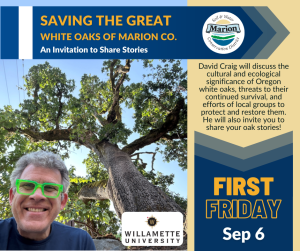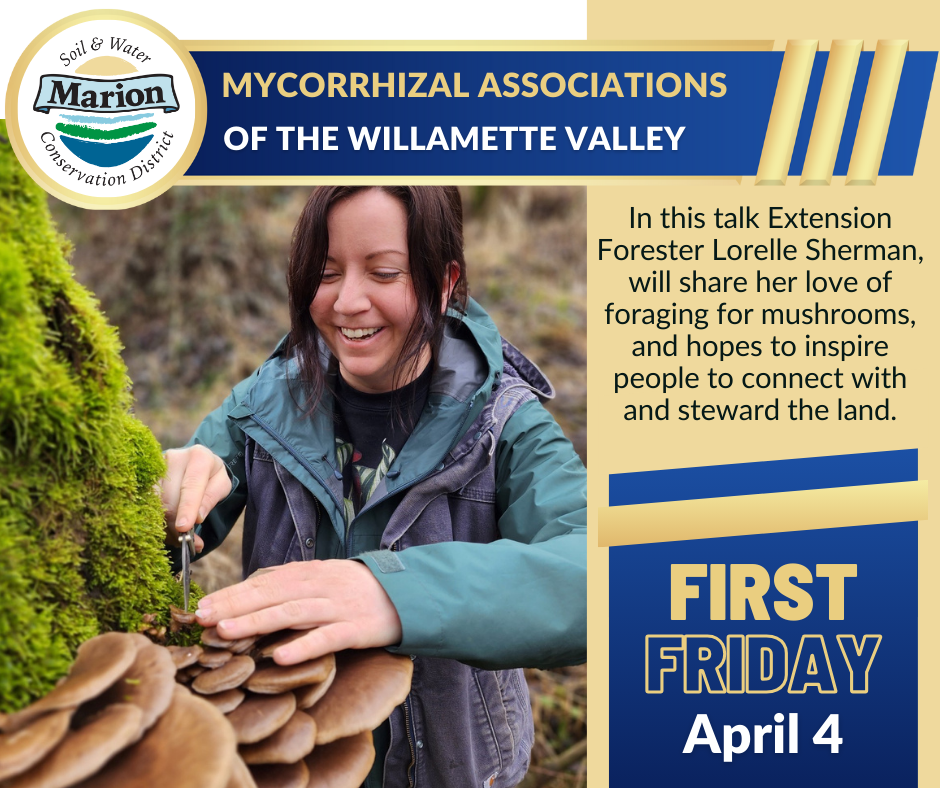Event Calendar

- This event has passed.
First Friday: Saving the Great White Oaks
September 6, 2024 @ 12:00 pm - 1:00 pm
Free
Saving the Great White Oaks of Marion County: An Invitation to Share Stories
In Marion County, Oregon white oaks are culturally and ecologically vital. The oak savannas and woodlands, rich in biodiversity, have supported a dynamic ecosystem for over 10,000 years. Oaks were central to the Kalapuya people, who relied on their acorns for food, and the oaks’ cultural significance continued into the European settlement era, which brought significant changes. Many oaks were cleared for agriculture and urban development, leading to habitat loss and fragmentation. Today, threats like climate change, disease, and urban expansion challenge the survival of these trees. Great white oaks are crucial for maintaining ecological productivity in Marion County. Their deep root systems stabilize soil, reduce erosion, and prevent landslides. These roots also improve soil structure, enhancing water infiltration and retention, which benefits local watersheds, natural habitats, and agricultural lands. Local organizations and community groups are working to protect and restore oak habitats through planting and land management practices. Sharing personal stories and experiences with these trees is also crucial, as they contribute to conserving biodiversity and cultural history, which will help preserve these iconic oaks for future generations.
Presenter: David Craig
David Craig has been a behavioral ecologist for 30+ years, focusing his field-oriented research on the response of animals to human-modified ecosystems and subsequent changes in distribution and movement patterns. The work combines life-history, and physiological and ecological information to address questions related to migration, predation, parental care, and social behavior. Today Craig has a particular interest in nuthatches, oaks, & public health, but has developed expertise with many species including crows, terns, cormorants, gulls, jays, ravens, plovers, murrelets, squirrels, and grasshoppers. He grew up in Scappoose, Oregon, and attended Lewis & Clark College, the University of Colorado, and Oregon State University before becoming a Professor of Biology and the Co-director of the Science Collaborative Research Program at Willamette University. Craig’s passion for interdisciplinary and collaborative work helped grow undergraduate research programs in the Pacific Northwest funded by the National Science Foundation, Carnegie Mellon Foundation, and MJ Murdock Charitable Trust. He is studying chinuk wawa, always reading a new book, and planning his next trip or meal with a large circle of friends and family. You can find him on most social media @DavidPCraig.

